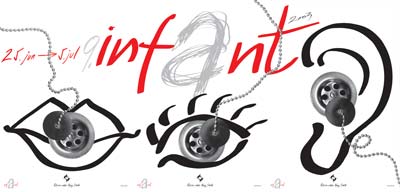
|
W e d n e s d a y, June 25th 23:00..C u l t u r a l...C e n t r e...o f...N o v i...S a d KIC "Budo Tomovic" / Academy for Alternative Culture - AZAK / Theatre Dodest: FORGIVENESS FOR BLOOD. (Podgorica) Performers: Ivanka Petricevic, Natasa Milovic, Milica Mijovic, Dolores Ivanovic, Nina Braletic, Carna Brkovic, Julija Milacic, Sanja Vujovic, Iskra Djurovic, Goran Vukcevic, Predrag Milosevic, Ivan Rakocevic, Darko Nenadovic, Vlatko Novkovic, Brano Lukovac, Veljko Scepanovic, Novak Savkovic, Srdjan Vujovic.. Project Author: Dzoni Hodzic Choreographer: Tamara Vujosevic Mandic Music: Leo Djokaj Stage and Costumes: Slobodanka Ricko Micunovic Lightening and Sound Design: Mirceta Stanisic & Branko Mandic Music Mixed at Studio by Adrenalin Bob Stanisic Costume Creation: Hakija Radoncic..Photo: Vesko Jokic Masseur: Ljilja Dubljevic-Medic..Executive Producer: Vero Begovic |
|
Montenegro, a country without country. The
country "the devil constantly enjoys". Stony sea and its warrior people.
The destiny never worked for their benefit, but they never complained
about it nor they reconciled with it. Civilisation, empires, and armies
changed, dramatical historical events went one after another like years,
and battles like days, conquerors unfurled their flags of different
colours and symbols - from white crosses, golden lions, to crescents,
Ottoman empire army, Venice Republic, Austro-Hungarian Monarchy, who came
there crowned with a glory of a victor over the strong and powerful, but
who returned with their heads bent. Montenegro - for centuries attacked,
surrounded by many borders, where East and West, on one hand, and
religions, and nations, on the other, were conflicted, but always
independent. It bore Spartan-like warriors ready to endure any efforts and
make any sacrifices, but to defend their freedom and their right to life,
observing moral principles, which classified them within the most
wonderful examples of human ethics and caused both admiration and respect
by their friends and enemies. Courage was moral category for them. This is
exactly why it often turned proud warriors into tragic persons. Life under
special circumstances, in tribal and brotherly communities, the feeling of
belonging to collective, created a special life and living ethics and
philosophy. They considered themselves, both in their own eyes, and even
more in the eyes of others, obligatory to defend others from themselves,
but also themselves from the others. To maintain their own, brotherhood
and tribe's virtue and honour. A wound of saber and gun was more easily
forgiven than the one caused by words. It was more easily forgiven when
caused by somebody else then by own people. Even the most harmless remark,
the slightest irony, and not to mention an insult - made them react
fiercely and immediately to it, but also to remember it until it is paid
back, not equally, but even more strongly and impudently. The one who does
not take revenge is not consecrated - this is what one was been telling
from the cradle to the grave. The most common squabbles often turned into
conflicts, while they turned into bloodshed, which sometimes lasted until
- excavation and investigation. Revenge was the only means that could
satisfy justice. Even the best people died, respectable brotherly and
tribal men, guilty and innocent… |
  

|
|




